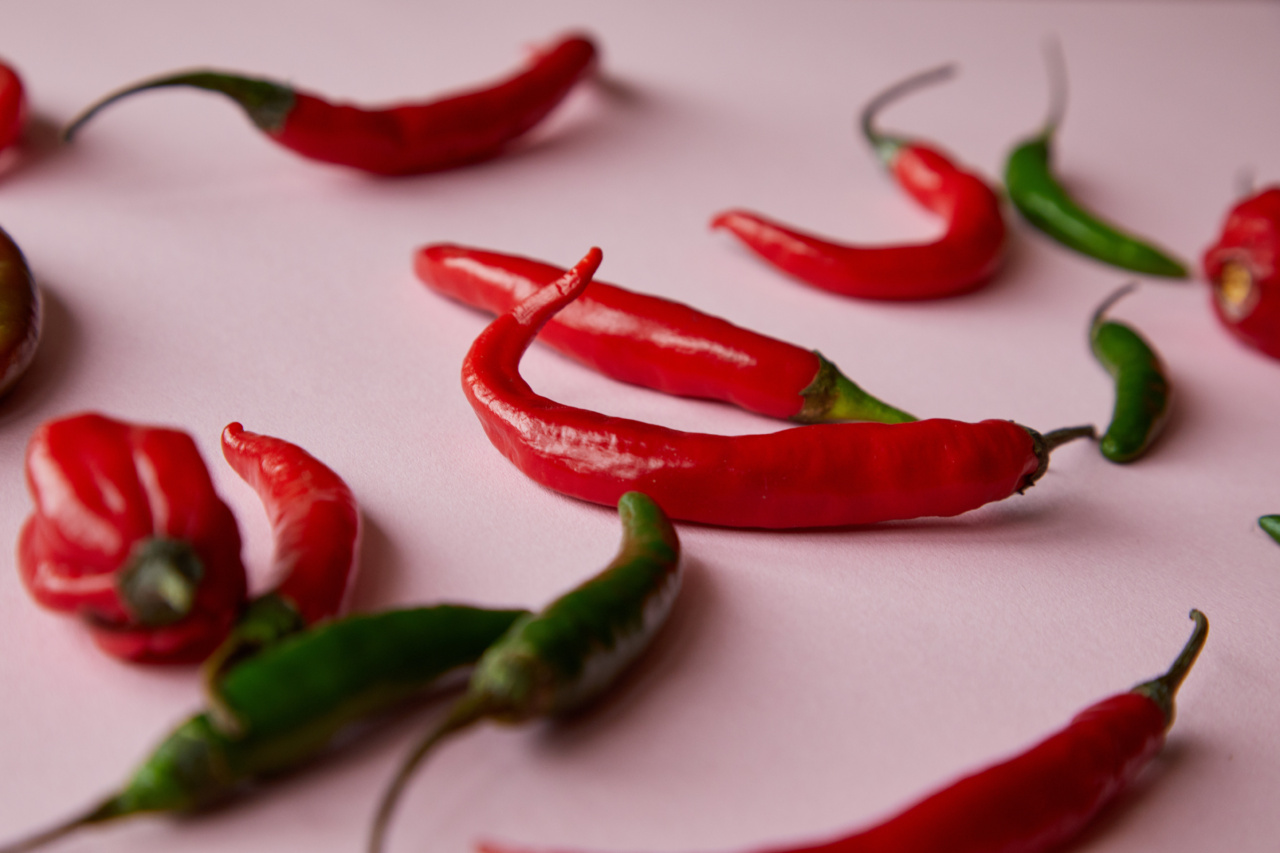Dementia is a devastating condition that affects millions of people worldwide. As the population continues to age, finding ways to prevent or delay the onset of dementia has become a crucial area of research.
In recent years, there has been growing evidence suggesting that diet may play a role in the development of dementia. One particular aspect of diet that has caught the attention of researchers is the consumption of spicy foods.
The Spice of Life
Spices have been an integral part of human history for thousands of years. Not only do they add flavor to our food, but they have also been used for medicinal purposes in many cultures.
In recent years, there has been a surge of interest in the health benefits of spices, with studies pointing to their potential anti-inflammatory, antioxidant, and antimicrobial properties. However, when it comes to dementia, the spice of life may carry some risks.
The Capsaicin Connection
One of the key compounds responsible for the heat in spicy foods is capsaicin. Found abundantly in chili peppers, capsaicin is known to stimulate the release of endorphins, which can create a pleasurable feeling.
However, research has also shown that capsaicin can have adverse effects on brain health. A study published in the Journal of Alzheimer’s Disease found that mice fed a diet high in capsaicin exhibited a decline in cognitive function compared to those on a control diet.
The researchers also discovered an increase in the levels of beta-amyloid, a protein associated with Alzheimer’s disease, in the brains of the capsaicin-fed mice.
Inflammation and Oxidative Stress
Inflammation and oxidative stress are two processes that are thought to play a significant role in the development and progression of dementia.
Several studies have shown that capsaicin can induce inflammation and oxidative stress in the brain, leading to neuronal damage and cognitive decline. Inflammation is the body’s response to injury or infection, but when it becomes chronic, as in the case of prolonged consumption of capsaicin, it can have harmful effects on brain health.
Hot Peppers and Blood-Brain Barrier
Another factor that may contribute to the link between spicy food and dementia is the blood-brain barrier (BBB). The BBB is a highly selective membrane that separates the blood from the brain and protects it from harmful substances.
However, capsaicin has been shown to disrupt the integrity of the BBB, allowing potentially damaging molecules to enter the brain. This disruption of the BBB may contribute to neuroinflammation and neurodegeneration, both of which are hallmarks of dementia.
Spicy Food and Vascular Health
Vascular health is crucial for maintaining proper brain function. Several studies have linked capsaicin consumption to adverse effects on vascular health.
For instance, capsaicin has been found to reduce blood flow, increase blood pressure, and impair endothelial function. These effects can lead to reduced oxygen and nutrient delivery to the brain, increasing the risk of cognitive decline and dementia.
Protective Effects of Spices
While the evidence linking spicy food to dementia is concerning, it is important to note that not all spices have detrimental effects on brain health. In fact, many spices have been shown to have neuroprotective properties.
Turmeric, for example, contains curcumin, a compound with powerful antioxidant and anti-inflammatory effects. Studies have shown that curcumin can help protect against Alzheimer’s disease by inhibiting the formation of beta-amyloid plaques and reducing inflammation in the brain.
Other spices, such as cinnamon, ginger, and cloves, have also been found to have neuroprotective effects. These spices contain compounds that can improve brain function, enhance memory, and reduce the risk of cognitive decline.
Incorporating these spices into your diet may provide some protection against dementia while still adding flavor to your meals.
Balance is Key
While the evidence regarding spicy food consumption and its link to dementia is growing, it is essential to maintain a balanced diet. The occasional indulgence in spicy foods is unlikely to have a significant impact on brain health.
However, daily or excessive consumption may increase the risk of developing dementia. It is important to remember that diet is just one piece of the puzzle when it comes to preventing dementia. Other factors, such as genetics, lifestyle choices, and overall health, also play a role.
Conclusion
In conclusion, while spices have been an integral part of human culinary history, their potential effects on brain health cannot be ignored.
The consumption of spicy foods, especially those high in capsaicin, may increase the risk of dementia by promoting inflammation, oxidative stress, and compromising vascular health. However, it is worth noting that incorporating neuroprotective spices, such as turmeric, cinnamon, ginger, and cloves, into your diet may provide some beneficial effects.
Ultimately, balance and moderation are key when it comes to maintaining a healthy mind and body throughout life.





























